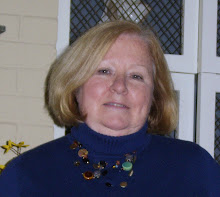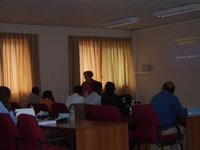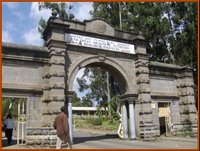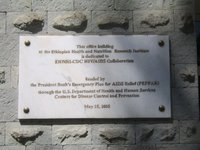LSUA Medical Technologist's Travel
Thursday, November 16, 2006
Wednesday, November 15, 2006
Day 5
There is so much to write and explain about our project in Addis Ababa. There are many groups working together: The Asociation of Public Health Laboratories (APHL), the Ethiopian Health and Nutrition Research Institute (EHNRI), CDC-Atlanta, CDC-Ethiopia, The Clinton Foundation, and American Society of Clinical Pathologists (ASCP). Our training site is at EHNRI. For this training participants had to submit an application, have earned at least their first degree (in Medical Technology) and have several years of experience working in a laboratory. Our participants are extremely qualified. This training is referred to as a TOT, or the Training of Trainers; we (the ASCP consultants) present material to the participants and in turn, they will each return to their respective labs and train other laboratorians.
There are, however, problems or gaps in resources and necessary supplies to run and report lab results. The Lab System is working to improve the courier system to allow transport of patient specimens in a timely manner to labs for analysis. Prior to this training, all lab analysis was done using manual methods and all reporting was by transcribing results onto blank peices of paper with the patient's identifying information. Most labs in Ethiopia are now receiving an automated hematology and clinical chemistry instrument. Our training includes actual hands-on training on the new instruments and discussion of the principles behind the automation.
I have had trouble getting online to share information due to fluctations in electricity and internet connections. This morning seems to be a good time?
There are, however, problems or gaps in resources and necessary supplies to run and report lab results. The Lab System is working to improve the courier system to allow transport of patient specimens in a timely manner to labs for analysis. Prior to this training, all lab analysis was done using manual methods and all reporting was by transcribing results onto blank peices of paper with the patient's identifying information. Most labs in Ethiopia are now receiving an automated hematology and clinical chemistry instrument. Our training includes actual hands-on training on the new instruments and discussion of the principles behind the automation.
I have had trouble getting online to share information due to fluctations in electricity and internet connections. This morning seems to be a good time?
Monday, November 13, 2006
First Day of Conference
Internet service over here is sporadic at best- so I will email all of you at once. I love it over here- so different- and laid back- our conference was to start at 8 am and I believe the participants arrived by 9:30!!!!! But they were all very intense and paid very close attention. They are also very intense about their scheduled 'breaks'--a restaurant set up tea cups/saucers (glass) along with snacks outside in the parking lot. The weather is cool and georgeous- blue skies- and people constantly bring all of us bottled water. Lunch and our taxi ride were an experience but we survived both!
I appreciate all of your posts/comments and your (LSUA) support. Our ASCP consultant group has members from the CDC (in Atlanta, and in Ethiopia), The APHL (Association of Public Health Labs) , ENHRI (Ethiopian group responsible for organizing their country and planning and asking for US involvement. The WHO (World Health Organization) is also involved. The other trainers are Medical Technologists from Florida, Atlanta, Tulsa, Louisiana, Chicago, and Wales.
This is definitely an experience. Our hotel is the Sheraton (google: sheratonaddis) is gorgeous and right outside our balconies our dwellings consisting of 5 odd shaped/sized pieces of metal- four sides and a roof. We will attend a 'coffee ceremony' while we are here and will get to visit Lalebele- another city that is famous for churches being carved directly into the mountain sides.
Our presentations are via powerpoint and are approximately on a 100-200 level LSUA course. I must attend a briefing so will close for now. If I can access the internet again later Iwill add to this comment.
I appreciate all of your posts/comments and your (LSUA) support. Our ASCP consultant group has members from the CDC (in Atlanta, and in Ethiopia), The APHL (Association of Public Health Labs) , ENHRI (Ethiopian group responsible for organizing their country and planning and asking for US involvement. The WHO (World Health Organization) is also involved. The other trainers are Medical Technologists from Florida, Atlanta, Tulsa, Louisiana, Chicago, and Wales.
This is definitely an experience. Our hotel is the Sheraton (google: sheratonaddis) is gorgeous and right outside our balconies our dwellings consisting of 5 odd shaped/sized pieces of metal- four sides and a roof. We will attend a 'coffee ceremony' while we are here and will get to visit Lalebele- another city that is famous for churches being carved directly into the mountain sides.
Our presentations are via powerpoint and are approximately on a 100-200 level LSUA course. I must attend a briefing so will close for now. If I can access the internet again later Iwill add to this comment.
Wednesday, November 08, 2006
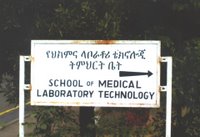
This blog will chronicle the experiences of an LSUA registered Clinical Laboratory Scientist volunteering time and sharing experiences while training laboratorians and helping build laboratory infrastructure in Addis Ababa, Ethiopia. As part of a six-member team (selected from across the US) I will help provide lab training in Hematology, Chemistry, CD4 testing, and offer quality improvement programs to aid in diagnosis and monitoring of HIV/AIDS patients in resource-limited countries.
Readers interested in learning more about the United States President’s Emergency Plan for AIDS Relief (PEPFAR) may benefit from reading this blog. The field of Clinical laboratory Science is relatively unknown to the general public, yet these professionals provide analysis and accurate test results responsible for 8O% of patient diagnosis. Readers interested in learning more about these hidden professionals and their work will also find this blog enlightening.
I will share my experiences of meeting, training, understanding, and appreciating Ethiopian people and their culture through this blog site. Our team’s training mission is for a short two weeks; I am anxious to volunteer my time and share my expertise in laboratory science and am sure I will come away with a much better understanding of a culture very different from my own and gain as much as I give. After returning to Alexandria and LSUA, I will share the culture and benefits (to Ethiopian citizens) of the medical facility with my students, faculty and community groups. I hope to return a better teacher from this experience and share information gained to benefit LSUA students.
I invite you to share my journey into the life and culture of Ethiopia as a medical laboratory volunteer.
